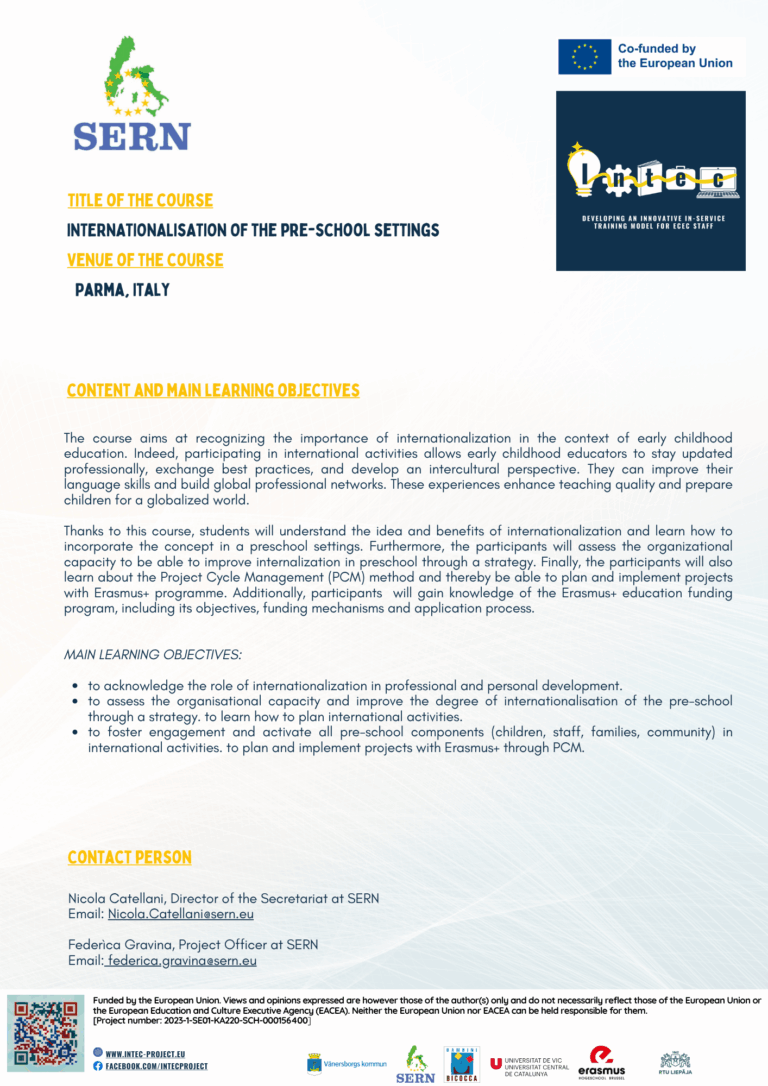Understanding internationalization in ECEC is crucial for equipping professionals with the ability to integrate diverse cultural perspectives and practices into their daily work, fostering a learning environment that respects diversity. This approach enriches the educational experience for children while preparing them to become European citizens.
For this purpose, SERN has developed the course Internationalization of the Pre-School settings that aims at recognizing the importance of internationalization in the context of early childhood education. Indeed, participating in international activities allows early childhood educators to stay updated professionally, exchange best practices, and develop an intercultural perspective. They can improve their language ski ls and build global professional networks. These experiences enhance teaching quality and prepare children for a globalized world.
The pilot Internationalization of Preschool Services training course was led by 2 trainers from SERN (experts in EU and International affairs with a clear-cut focus on ECEC sector, and Project management) and involved 31 participants (mostly Preschool educators, teachers, pedagogical coordinators from kindergartens and nurseries, and municipal administrative staff working in the early childhood education sector with over 15 years of experience in the field.
The course had a total duration of 25 hours across 4 months period divided as follows:
